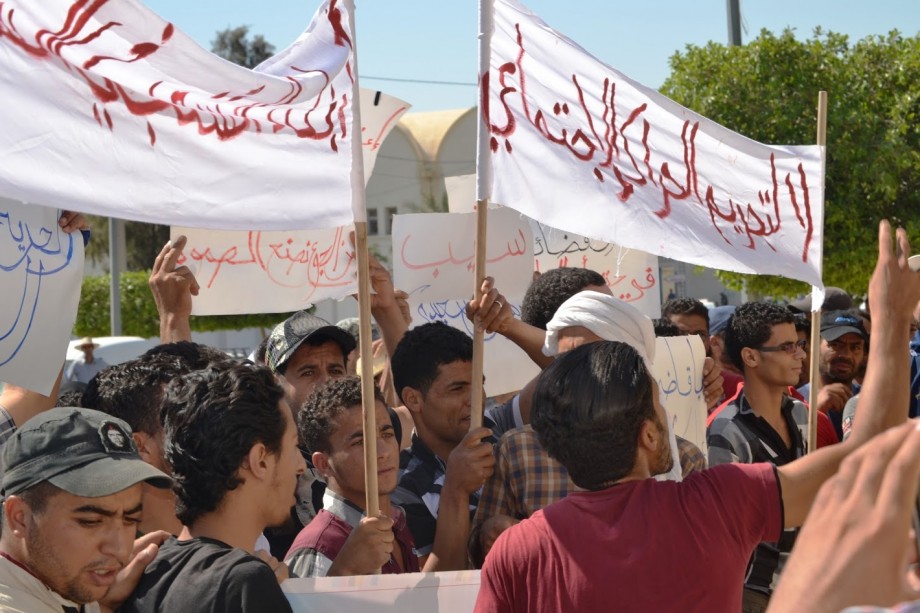Tunisia: Stop criminalizing peaceful protests
13 March 2017
Stop criminalizing peaceful protests
More than six years after the Tunisian revolution, successive governments have so far failed to address the social and regional rifts that had triggered the protests against Ben Aly’s regime. Quite the opposite, they have got worse. While Tunisia is hailed as a model for democratic transition in the Arab World, young people see no opportunities for the future in the country.
Since 2011, tens of thousands of young people have taken part in the dangerous adventure of clandestine migration, others have joined armed groups in Libya, Syria and Iraq. Still, some believe in peaceful protests to remind politicians of the demands of the revolution.
That’s why unemployed graduates, precarious employees and agricultural workers in the underprivileged regions of Sidi Bouzid, Kasserine, Kef , Gafsa …are protesting for months( public demonstrations, sit-ins, hunger strikes….) to claim jobs, dignity and regional equity.
However instead of initiating dialogues with those youths, the government intensified its repressive measures through escalations of police interventions, arrests, trials and arbitrary detentions. According to the Network of Social Movements, more than 220 young people have been brought to court in different Tunisian districts since the beginning of March 2017 under different charges: jeopardizing public order, assault on public officials during the exercise of their duties, obstructing the free movement of people… Some of the articles under which these protesters are convicted go back to the colonization era.
The Tunisian Forum for Economic and Social Rights (FTDES) calls on the Tunisian government to repeal laws criminalizing social dissent, to immediately release all the youths arrested following protests and to drop all the charges against them. We believe that marginalizing young people and, at the same time, preventing them from dissent could only contribute to the deterioration of the situation in the country and to weaken the still fragile democratic process.
Furthermore, the FTDES reminds the authorities that the right to peaceful citizens’ dissent to air their grievances and to make their voice heard is part of the fundamental rights guaranteed by both the Tunisian constitution and international conventions.
The President,
Abderrahmène Hedhili
Annonce de l'administrateur de ce siteNous avons fermé cette pétition et nous avons supprimé les informations personnelles des signataires.Le règlement général sur la protection des données de l'Union européenne ( RGPD) exige que le stockage des informations personnelles soit motivé par une raison légitime et que ces informations soient conservées le moins longtemps possible. |
